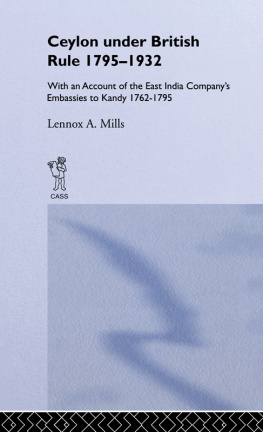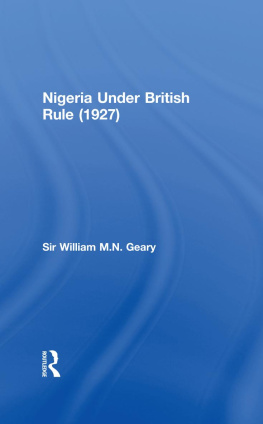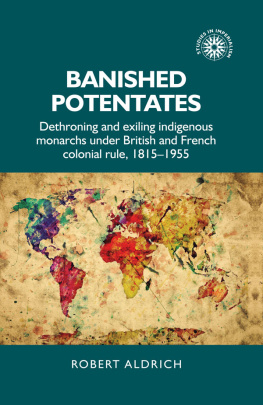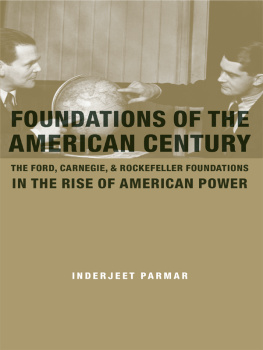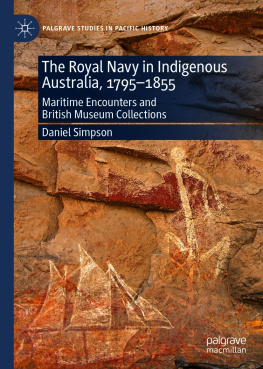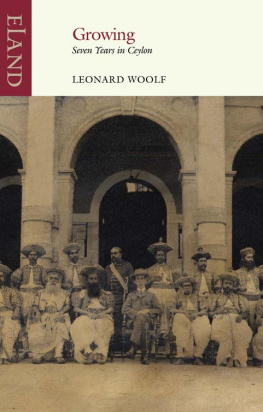First published by the Oxford University Press (1933) by whose permission this present edition is now published.
This impression first published by
Frank Cass & Co. Ltd.,
This edition published by Routledge - 2012
2 Park Square, Milton Park, Abingdon, Oxon, OX14 4RN
711 Third Avenue, New York, NY 10017
Routledge is an imprint of the Taylor & Francis Group, an informa business
First Edition 1933
New Impression 1964
Transferred to Digital Printing 2005
ISBN: 978-0-714-62019-0 (hbk)
ISBN: 978-1-136-26271-5 (ebk)
Preface
N O comprehensive account of the British rgime in Ceylon has appeared since the publication of Sir Emerson Tennents work over sixty years ago. A few valuable articles and books have been written; but these dealt either with the Portuguese and Dutch or with the early British periods. This book is an attempt to trace the development of the colony particularly during the first ninety years of its history. To a considerable extent the chapters dealing with the conquest and the first decade of British rule summarize and in some points supplement the accounts of previous writers. The greater part of the book is almost entirely based upon my own investigations. With the suppression of the Kandyan revolt of 1818 Ceylon ceased to have a history in the old-fashioned sense of the term, apart from the episode of the revolt of 1848. Instead there was a record which was in part administrative and in part economicthe development of the Civil Service, the advancement of Ceylonese prosperity, the conflicts between a benevolent despotism and the European colonists, and the vicissitudes of coffee and cinnamon.
The decade of the eighties approximately marked the beginning of the transition to twentieth-century Ceylon, even though the change did not become well-defined until the nineties. In agriculture the dependence on the single staple coffee was replaced by a more diversified cultivation. The development of the nation-building services in the nineties contrasted with the older and simpler conception of the responsibilities of Government. The Ceylonese movement for constitutional reform began at the same period. Owing to exigencies of space the detailed study closes with the beginning of the change; but in the final chapter the salient features of the modern period are examined. For this part of the book the writer was under the disadvantage that his residence in Minnesota prevented him from consulting all the sources of information at present available.
It is a pleasure to acknowledge my especial obligations to Professor Coupland for his interest and invaluable assistance.
I regret exceedingly that the recent death of my friend, Sir Charles Lucas, K.C.B., has deprived me of his final criticisms. His life-long interest in Ceylon led him to entertain expectations of the book which I hope may prove in some degree justified. I am indebted to Mr. Evans Lewin, the Librarian of the Royal Empire Society, for his help and advice, and particularly for placing at my disposal part of the material on which the map accompanying this book is based. My thanks are also due to Mr. F. Walter, the Librarian of the University of Minnesota, and to Miss A. J. Mayes of Wendover, Bucks., for their assistance in collecting part of the material for the final chapter.
L. A. M.
UNIVERSITY OF MINNESOTA,
1932.
I
British Relations With Ceylon 17621796
I GOT to Bed just at sunrising, never more fatigued or disgusted with any jaunt in my Life. An unusual sentence this, in an official report to the Government of Madras, but in truth John Pybus had been sorely tried.1 Sent as ambassador to Kandy, he had been summoned for his interview with the King at 11.30 p.m., the usual hour for court receptions. It was a night of steamy heat with a pouring rain; but as Kandyan etiquette required, the ambassador and his escort walked hand in hand through a very dirty Road to the palace. Then followed a long wait, hatless and shoeless, in a very dirty courtyard, until finally Pybus was admitted to the hall of audience, rain-soaked and perspiring, and pretty well bemired.
Pybuss mentors now informed him that he must observe the etiquette of the Dutch ambassadors to Kandy, and after indignant expostulations he was compelled to agree. As the ambassador advanced towards the throne he knelt four times, the courtiers prostrating themselves; while on reaching the foot of the dais he again knelt and presented his credentials from the Government of Madras. The conversation with the King continued until nearly morning, nor is this surprising when one considers the manner in which it was conducted. The King spoke to one of his ministers, who prostrated himself and repeated the remark to another official. He in turn prostrated himself and repeated it to an Indian, who prostrated himself and repeated it to Pybuss Indian servant, who repeated it to Pybus. By the same devious channel the reply eventually filtered back to the royal ears. Tired, hungry, and mortified, Pybus at length obtained leave to withdraw. He was informed that he must observe the same etiquette on leaving as on entering the royal presence; but at this point exasperated human nature rebelled. Every time the courtiers prostrated themselves I sat down.
The immediate cause of the embassy had been a request from the King of Kandy to the Madras Government for aid against the Dutch. The Dutch held the coastal plains of Ceylon, but like their predecessors, the Portuguese, they had failed to conquer the mountains of the interior, the ancient kingdom of Kandy. The Kandyans were bitterly hostile, and in 1762 were involved in one of their frequent wars with the Dutch. The motives which had induced the Madras Government to send Pybus were partly strategic and partly economic. As a result of Clives conquests the centre of British power in India had shifted from the western to the eastern coast, and naval actions were generally fought in the Bay of Bengal.1 The only dockyards, however, were at Bombay, and there was no harbour on the Bay of Bengal which seemed capable of conversion into a naval base. This involved two serious disadvantages, of which the first was that ships damaged in action in the Bay of Bengal were compelled to make the extremely circuitous, tedious and difficult voyage to Bombay for repairs. Moreover, during the period of the North-Eastern monsoon, from October to March, the fleet had to withdraw to the west coast to avoid the violent and dangerous hurricanes which generally happen In other words, for several months of the year the heart of the British Empire in India was entirely at the mercy of any enemy who might chance to have a squadron in the Bay of Bengal. The events of 1758 proved that the menace was far from theoretical. After a naval action with the French the British fleet sailed to the dockyard at Bombay, and was absent from October until April 30, 1759. Meanwhile a French squadron appeared in the Bay of Bengal, and co-operated with the land forces under Lally in the siege of Madras. The North-Eastern monsoon prevented the return of the British fleet, and Madras escaped capture only because of the arrival of six of the East India Companys ships in February. The moral was clear: a naval base must be obtained somewhere in the Bay of Bengal. The most suitable was the magnificent harbour of Trincomalee, but this formed part of the Dutch territories in Ceylon, and was for the moment unobtainable. The King of Kandy, however, still held part of the sea-coast of Ceylon, and it was possible that a harbour might be found within his possessions. The Madras Government, therefore, welcomed the opportunity to send Pybus to his court, and particularly instructed him to ascertain whether there were such a harbour, and whether the King would give us an entire Grant for ever.1


